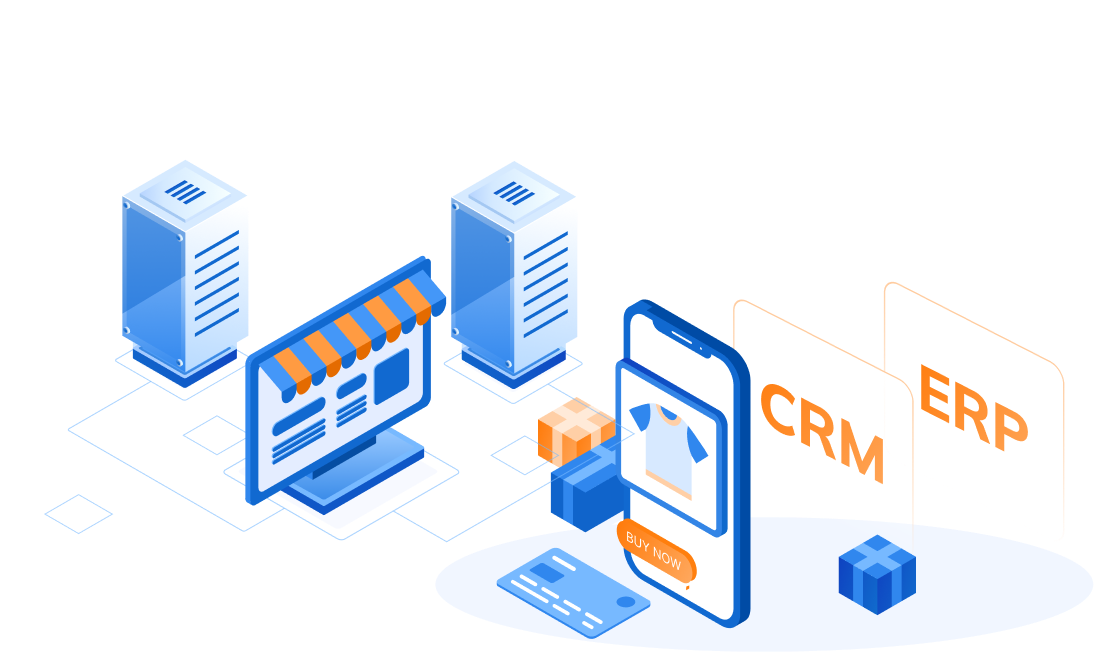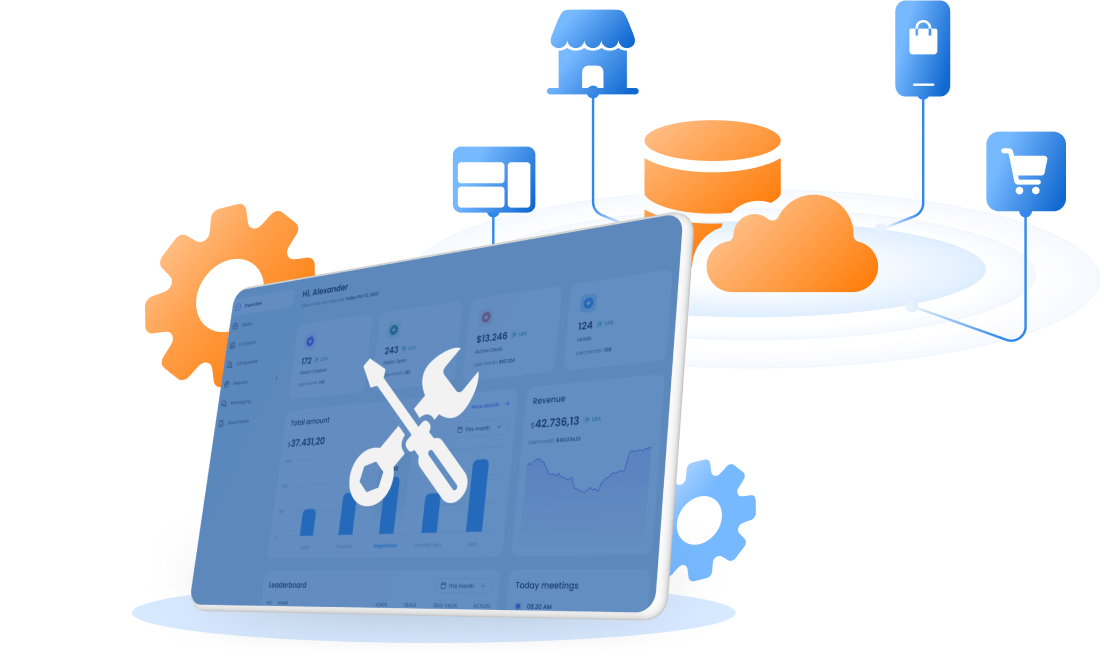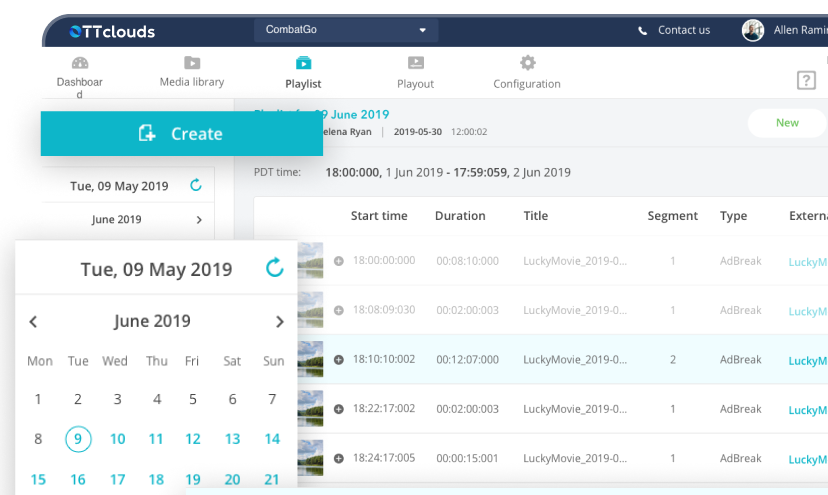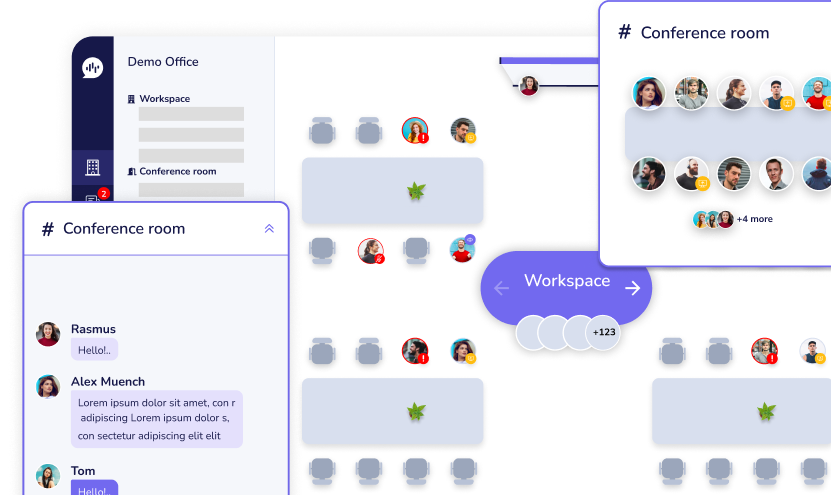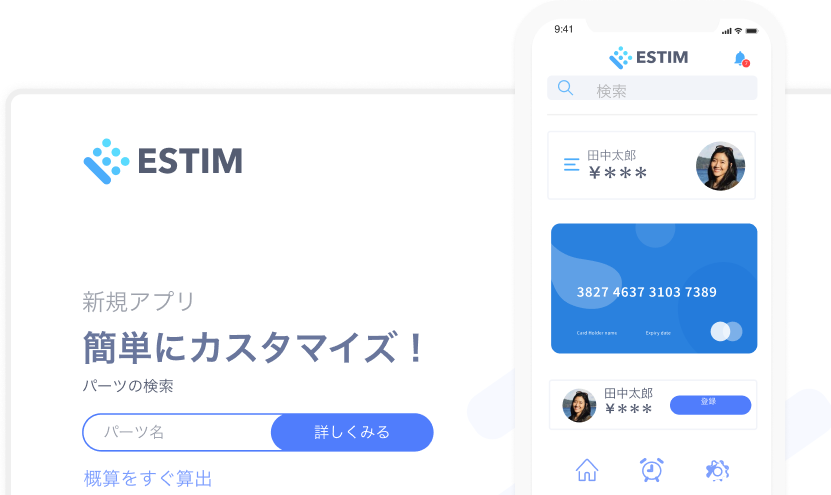A New Guide to Offshore Software Development in 2025
05/11/2024
1.26k
Once considered a mere trend, digitalization has become a vital requirement for companies. Consequently, there is a growing demand for IT services. According to Statista, the global IT consulting and implementation services market is projected to reach $82.44 billion by 2027. Due to its affordability and easy availability for tech experts, offshore software development is emerging as a software development option in the modern digital era. Many startups and small enterprises are exploring offshore software development for its numerous benefits, including reduced time, costs, and effort.
This SupremeTech article aims to define offshore software development, provide potential benefits and challenges for your business, and introduce you to the most successful Vietnam offshore development company.
What is offshore software development?
Offshore software development involves outsourcing your software development needs to a third-party software provider in a foreign nation. After that, entrust them with the challenging programming responsibilities associated with your project.
Consider a scenario in which a US-based business collaborates with a successful offshore software development company in Vietnam to develop a digital transformation system.
This outsourcing model has recently gained popularity due to its numerous advantages. Specifically, it eliminates the geographical barrier to finding a suitable development team. Besides, the third-party vendor assumes full responsibility for the development process and product quality. Offshore software development services have become increasingly popular. They provide access to highly skilled employees at competitive prices, reducing the overall costs of managing a development team.
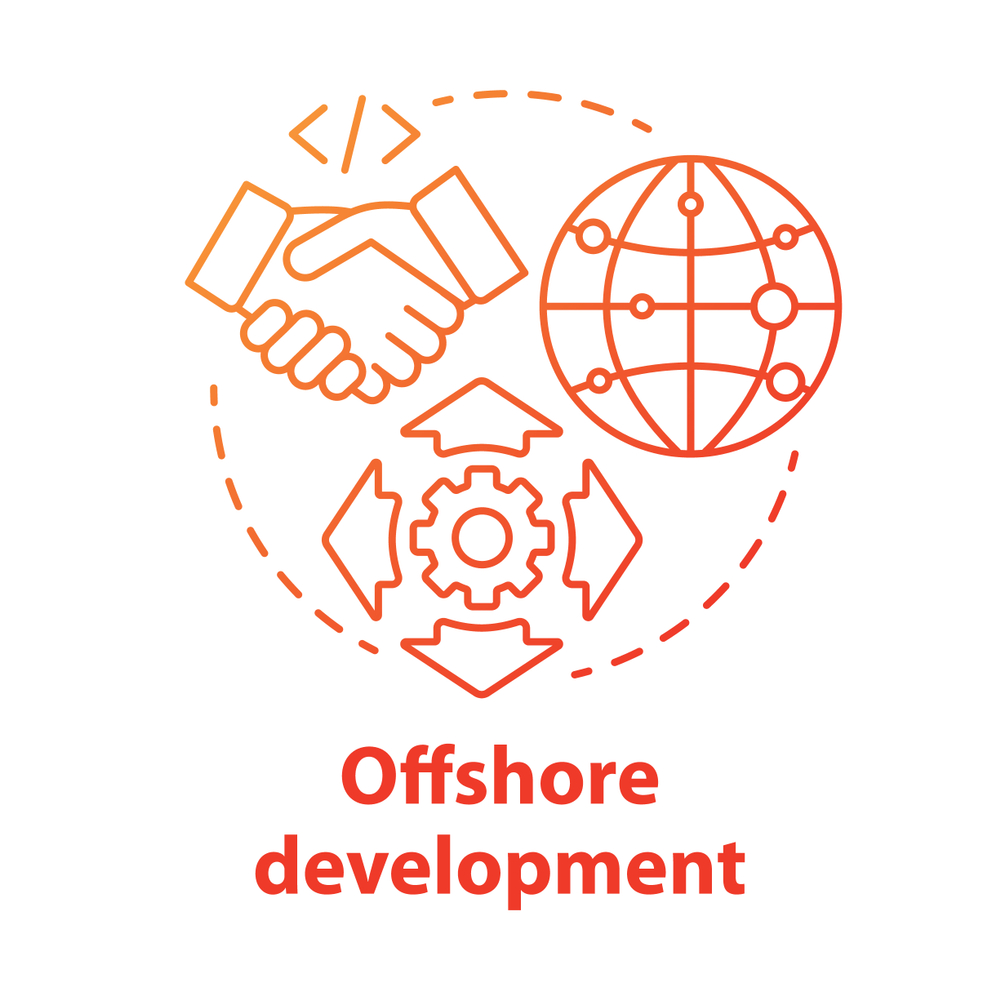
Onshore vs. Nearshore vs. Offshore Outsourcing: Understanding the Differences
Due to unique geographical and collaborative dynamics, offshore outsourcing distinguishes itself from onshore and nearshore outsourcing. In onshore and nearshore outsourcing, the IT vendor operates in the same country or a nearby region, fostering accessibility in managing cultural norms, language barriers, and time zone differences.
Onshore Outsourcing
Onshore or domestic software development outsourcing involves collaboration with local individuals or vendors within the same region. For example, a software development business in the United States might outsource a project to a service provider in the same, close, or neighboring state, ensuring the project’s completion within the nation.
Nearshore Outsourcing
Nearshore outsourcing entails working with an IT partner in a neighboring country, typically for specialized needs like recruiting, consulting, or project-based services. Nearshore firms are located in the same time zone, on the same border, or in proximity. For instance, a U.S. corporation may outsource a software development project to a Canadian company, minimizing geographical distance despite being in a foreign country.
Offshore Outsourcing
In contrast, offshore development outsourcing introduces significant geographic distances, time zone differences, and often cultural or linguistic barriers between the client and the outsourcing partner. As proof, if a U.S.-based company delegated the project development process to Vietnam, an emerging IT destination, it engaged in offshore outsourcing.
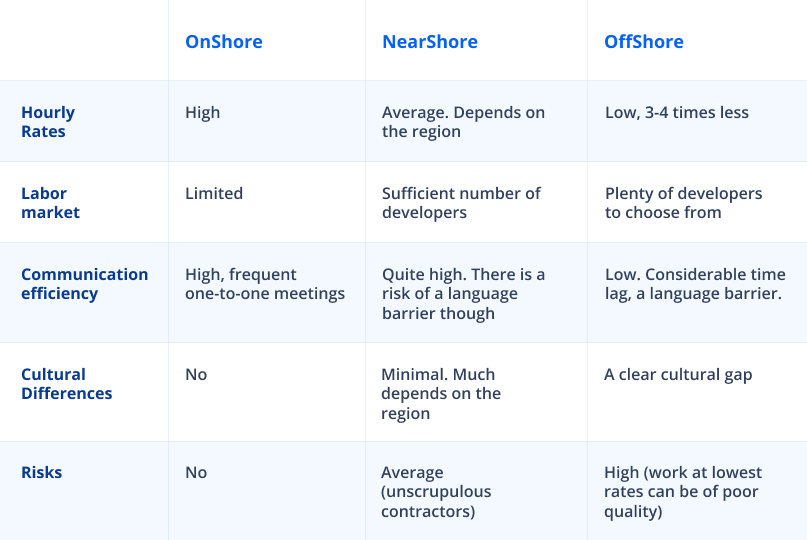
Which services can be outsourced?
An offshore software companOutsourcing IT tasks to an offshore software company can be a strategic move for businesses looking to enhance efficiency and reduce costs. Here are some of the most frequently outsourced services that can significantly benefit from external management:
Custom Software Development
Custom software development is one of the primary services outsourced to offshore companies. This allows businesses to create tailored solutions that meet specific needs without the costs of hiring a full-time in-house development team. Offshore companies can provide the expertise to deliver high-quality software that aligns with business goals.
Cloud Infrastructure Management
Managing cloud infrastructure can be complicated and time-consuming. By outsourcing this function, companies can ensure that their cloud environments are optimized for performance, security, and scalability. Offshore providers often have the tools and expertise to manage cloud resources efficiently, allowing businesses to focus on their core operations.
LINE MINI App Development
Developing LINE MINI apps is essential for businesses targeting customers in Japan, Thailand, and Taiwan, as LINE is the leading messaging platform in these regions with millions of active users. Offshore software companies like SupremeTech specializing in this area can provide valuable insights and technical skills to create engaging applications that resonate with local users, enhancing customer interaction and satisfaction.
Omnichannel Retail Solutions
Today’s customers expect a smooth shopping experience across different shopping channels. Outsourcing the development of omnichannel retail solutions allows businesses to integrate their online stores, mobile apps, and physical shops, ensuring a cohesive customer journey.
Software Quality Assurance (QA) and Testing Services
Quality assurance and testing are vital components of the software development lifecycle. By outsourcing these services, companies can have experienced professionals thoroughly test their software before it goes live. This helps identify bugs and issues before deployment, ensuring a smooth user experience and reducing post-launch problems.
UI/UX Design
User Interface (UI) and User Experience (UX) design are crucial for making software easy to use and visually appealing. Offshore teams can provide specialized design services that focus on creating intuitive and visually appealing interfaces. This not only enhances user satisfaction but also increases engagement and retention rates.
Dedicated Development Team
Many businesses opt to outsource an entire dedicated development team. This model provides access to a pool of skilled professionals who work exclusively on a company’s projects. It offers flexibility in scaling resources according to project demands while ensuring the team is aligned with the company’s goals and culture.
Outsourcing has become the optimal solution for various business challenges. Beyond IT functions like cybersecurity, customer support, data storage, etc., businesses can outsource non-IT functions such as legal, tax, HR, finance, etc.

The benefits of offshore software development
Deciding between in-house software development and partnering with an offshore development team can be challenging. However, offshoring software development presents an enticing economic proposition due to its various benefits:
1. Cost savings
Maintaining an in-house IT workforce with up-to-date technology knowledge is challenging and costly. Outsourcing software development eliminates the need to invest in IT infrastructure or spend time recruiting and training personnel.
Many offshore software development centers, such as those in Central Europe, offer flexible pricing and high-quality services. Favorable factors like a skilled workforce, official support, and tax advantages make countries like Vietnam, India, China, and Ukraine cost-effective choices compared to US developers.
Consequently, offshore software firms may provide similar services at a lower cost, enabling savings of up to 40% – 50% without compromising project quality or expertise.

2. Obtaining qualified talents
Are you facing challenges in hiring IT professionals locally? Outsourcing development teams offers a perfect alternative, helping to resolve the shortage of IT professionals. Furthermore, when the project is completed, it can relieve the stress of managing and employing in-house development teams.
Offshore development can attract many skilled software engineers. These engineers have extensive experience creating software applications that meet global standards. They also bring valuable insights from working on international projects, which helps them understand the challenges in custom software development.

3. Time savings
Starting projects from scratch can be challenging. Hiring, training, and managing people takes a lot of time and resources, which can create stress due to tight deadlines. Offshore software development companies can help speed up this process. They have the expertise to deliver projects on time while keeping costs down. By using Agile methods and other development technologies, these companies ensure that projects are completed as planned, allowing for ongoing improvements and quick adjustments to any changes.

4. Approaching the latest technologies
The high cost of adopting new technologies often challenges many organizations. However, by partnering with IT outsourcing service providers who are deeply invested in technology and consistently stay abreast of new developments, you can confidently rely on them to gain access to new tech stacks.
Common offshore software development challenges
1. Time zone differences
Time zone differences can significantly affect communication and may cause delays in product development. These time differences can slow decision-making if a business requires prompt response and approval on an important issue.
At SupremeTech, we handle time zone differences by arranging work hours and clear communication. We schedule our meetings to fit your work hours so you get timely updates and quick responses to essential questions or approvals. This helps reduce delays and keeps your project on track without slowing development.
2. Lack of communication
Communication challenges are common in offshore software development for several reasons. One major issue is language barriers, which can make effective communication difficult. To mitigate this, it is important to choose a software outsourcing partner who is fluent in English or your preferred language. Additionally, their work processes should align with yours throughout the development cycle.
At SupremeTech, we address these challenges head-on. Our Business Analysts, or Proxy Product Owners, bridge the communication gap between the development and business teams. We not only communicate in your language but also enhance understanding of the various roles within the project, foster the development team’s sense of ownership, and align everyone towards a common goal for project success.
3. Data security issues
Data leakage is a pressing concern in offshore collaborations involving sensitive information. Address this issue by engaging a partner firm and establishing a Non-Disclosure Agreement (NDA). Additionally, inquire about the outsourcing vendor’s security measures, such as user privacy policies, secure data storage, encryption, and compliance with regulations like the General Data Protection Regulation (GDPR).

4. Quality assurance
Maintaining quality control when working with an unfamiliar team can be difficult. Offshore developers might have different ideas about how business should be conducted and projects should be managed. This can lead to a final product that doesn’t match your expectations. Additionally, you might be collaborating with recent college graduates or less experienced developers.
To address quality control issues, SupremeTech consistently follows global standards for quality and security. We have achieved ISO certification to guarantee the security, quality, and efficiency of our products, services, and systems. Our information security policies are audited by CyberGRX, ensuring we meet high standards. Additionally, we are proud to have been recognized as a Silver Partner of ISTQB in 2022 for our software testing practices.
When should you work with an offshore development vendor?
Offshore development provides clients substantial benefits, including cost and time savings, access to highly skilled engineers, and the latest technology. However, offshore outsourcing faces many challenges, including time zone differences, communication issues, data leakage, and quality assurance concerns. Offshore development becomes an excellent alternative when you aim to:
- Prioritize core business activities.
- Access industry professionals.
- Increase technological competence.
- Accelerate project completion.
- Control the software development costs.
- Reduce operational costs.
In conclusion, offshore development provides firms various alternatives to save effort, time, and money. To keep your budget while getting decent results, you may hire offshore IT experts to create a versatile and successful new product. Contact us for a consultation on any queries about offshore software development.
References:
Statista Research Department and 14, M. (2024) Global: IT consulting & implementation market revenue 2018-2029, Statista. Available at: https://www.statista.com/forecasts/1079927/it-consulting-implementationservices-revenue (Accessed: 28 October 2024).




